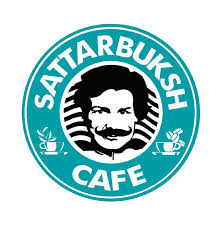#198 When a Latte Isn’t Just a Latte: From Starbucks to Sattar Buksh
Few brands are as globally recognizable as Starbucks. Its green siren logo and store designs have become shorthand for a particular style of urban coffee culture. But such ubiquity comes with an inevitable problem: copycats. From Shanghai to New Delhi, smaller chains have tried to borrow Starbucks’ aura by tweaking its name, logo, store design, or menu just enough to confuse – or amuse – local consumers. Most of the time, Starbucks goes after these copycats, with mixed results.
In some cases, Starbucks prevailed. Take the example of Turkish coffee chain Sardar Buksh, a coffee chain whose name and branding closely mirrored Starbucks. Starbucks pursued the matter legally and successfully argued that the similarity amounted to trademark infringement and consumer confusion. Courts agreed that Starbucks’ intellectual property deserved protection and ordered corrective measures. For a multinational like Starbucks, this was a textbook win: the brand was defended, the copycat reined in, and a precedent reinforced.
But not all outcomes have been so straightforward. In Pakistan, a chain called Sattar Buksh not only survived a Starbucks challenge but thrived, in part by positioning itself as a satirical take on Western coffee culture. With its tongue-in-cheek name that’s based on a real person’s and some playful marketing, Sattar Buksh successfully argued in local courts that it wasn’t deceiving customers but rather poking fun at global consumerism. Parody became a shield for them. The decision underscored how legal systems differ and cultural contexts matter. What looks like infringement in one country might be seen as fair commentary or cultural adaptation in another.
These contrasting outcomes raise bigger questions about intellectual property in a globalized marketplace. Should powerful international brands always get their way, even when local entrepreneurs inject humor and cultural flavor into their ventures? Or should there be space for parody and playful imitation, especially when consumers are in on the joke?
For Starbucks, the stakes are high. Protecting its brand is about more than just losing sales of a few more lattes; it’s about maintaining the exclusivity and consistency that create attraction and justify premium pricing worldwide. Yet the uneven legal track record suggests that even the strongest trademarks aren’t ironclad everywhere. And perhaps that’s the real lesson: in a world where brands travel faster than laws, sometimes even a coffee giant has to accept that not every “Buksh” can be stopped.
